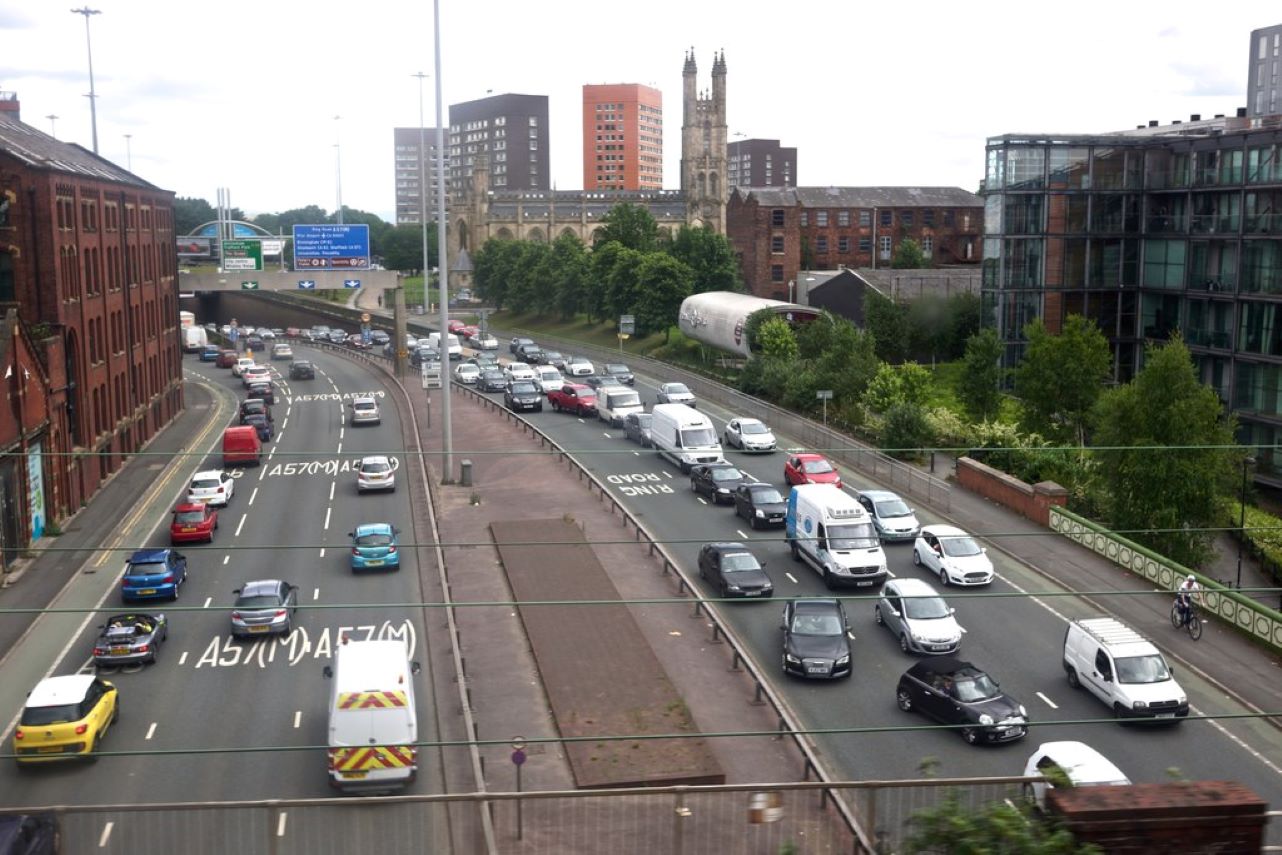The plans for a Clean Air Zone (CAZ) in the Greater Manchester area were aimed at providing better air quality. Under the scheme, the most polluting vehicles would have been charged between £7.50 and £60 per day as of May 30th.
However, the plans angered businesses and residents living just outside the zone, who would have had to upgrade their vehicles at their own cost so as to enter Greater Manchester without being charged. Multiple reports in the local press indicate that most of the complaints are coming from the owners of LGVs.
An analysis carried out by Greater Manchester Authorities found that the impact of Covid-19 on supply chains and the price and availability of second-hand vehicles would make it harder for people to upgrade to cleaner vehicles, meaning the Clean Air Zone was unlikely to deliver compliance with legal limits by the original date of 2024.
This has led the Mayor of Greater Manchester to request more time to achieve NO2 compliance and enable Greater Manchester local authorities to review their NO2 plan.
The government has agreed to allow a short delay to the implementation of the Clean Air Zone to allow Greater Manchester to provide further evidence and a revised plan by July – setting out how it will deliver legal levels of NO2 as soon as possible, and no later than 2026.
Leeds CAZ was scrapped due to legal concerns
The Leeds CAZ was supposed to have been launched in January 2020, but after several delays, it was finally scrapped in October 2020 because “the amount of nitrogen dioxide (NO2) pollution on key roads was within the Government’s legal limit,” as the council said at the time.
However, following a Freedom of Information request, the Yorkshire Post has revealed that concern about the legal authority of such as scheme was the ultimate reason behind the decision to scrap it.
The local paper refers to emails by a council official:
“If we were to continue to implement a CAZ having already achieved compliance and having evidence to show that compliance will be maintained, this exposes the council to legal challenge as the legal duty has now been met. Having received advice from counsel, we believe we have no legal authority to proceed with the CAZ.”
Leeds was ordered to reduce air pollution in 2017 by the UK Government, and received £29m of government funding in 2019 to set up the CAZ and support businesses in switching cleaner transportation.
Partly as a result of the planned CAZ scheme, air quality improved “far faster than anticipated”, wrote the council in an email to the Department for Environment last year. This information was happily welcome by the environmental minister. This meant there was no need for a clean air zone, the correspondence concluded.
Leeds City Council agreed to hand back £1.5m of the CAZ funding last year. Some of the grants were used for supporting the switch of local taxis to greener vehicles, and “the council was also allowed to keep a £6m network of around 300 automatic number plate recognition cameras,” writes the Yorkshire Post.











